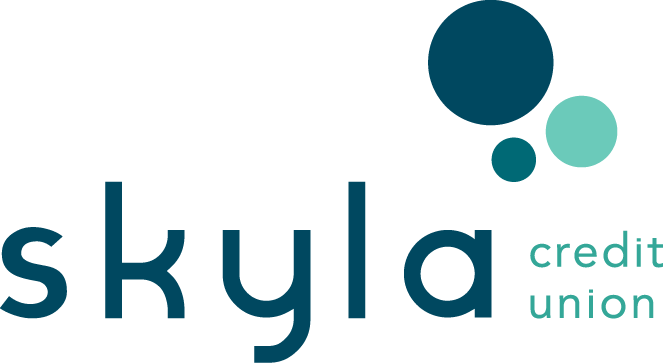What's the Most Important Thing to Understand About Credit Scores?

Credit. It's a scary topic. Mainly because so many things can surprisingly ruin your credit scores, such as late or missed payments, applying for more credit cards, carrying high credit card balances, ignoring your credit report, and more.
 Unfortunately, ways to improve credit aren't talked about much, and many factors go into it, so it's understandable why you're searching for answers. Trust me, I've been in your shoes where I didn't know much about credit scores—and not knowing led to making mistakes that affected my everyday life. So, I'm here to help you avoid making the same or similar mistakes in your credit repair journey so you can take the necessary steps to gain control of your financial health.
Unfortunately, ways to improve credit aren't talked about much, and many factors go into it, so it's understandable why you're searching for answers. Trust me, I've been in your shoes where I didn't know much about credit scores—and not knowing led to making mistakes that affected my everyday life. So, I'm here to help you avoid making the same or similar mistakes in your credit repair journey so you can take the necessary steps to gain control of your financial health.
Since this is an essential part of your financial health, I'm going to share how your credit score works and tell you what actionable steps you need to take to help increase and maintain your credit score. Plus, there's a handy Credit Score Builder tool for you!
here's what we're about to cover:
|
|
 what is a credit score?
what is a credit score?
Your credit score is a three-digit number ranging from 300-850 based on a credit report, which is information formulated by three reporting credit bureaus - Transunion, Experian, and Equifax. Your score is calculated by multiple factors (which we’ll get to below) and determines your borrowing power. Creditors look at your score to tell if they will get their money back on time; they use your score to see your previous lending activity and more
 why is my credit score important?
why is my credit score important?
Credit is essential in the financial world. If you want to open a credit card, buy a house or a car, get home or car insurance, or even get a new cell phone, your credit is going to be evaluated. Your credit score gives lenders an idea of how you handle money and base things such as the interest rate you pay on how your score looks.
Simply put, the better your credit score, the better your interest rate! That means more money in your pocket. Don't believe me? Take a peek at this rate comparison chart for a 60-month, $20,000 auto loan to see how drastically your payments and the total amount paid over the life of the loan can be impacted.
*All rates are for demonstrative purposes only.
 what factors go into a credit score?
what factors go into a credit score?
Your credit score is measured by multiple factors. Here’s a look at how your score is calculated when creditors use the VantageScore model

- Payment History (41%): Your payment history makes up 41% of your score. This includes info on your account payments, any late payments, and public records. Just one 30-day late payment can drop your score by 40 to 80 points, so paying bills on time is crucial for keeping your score strong.
- Age & Credit Mix (20%): Reflects the variety and age of your credit accounts. Lenders like to see a mix of credit types and well-aged accounts, which together make up 20% of your score. A diverse mix indicates that you can manage different types of credit responsibly over time, while older accounts show long-term credit management.
- Utilization (20%): Measures the percentage of available credit you're using. To achieve the best score in this category, aim to keep your utilization rate low. Utilization contributes 20% to your score. High utilization rates can signal financial distress, so it's best to use less than 30% of your available credit.
- Balances (6%): The total amount of debt you owe across all your accounts. Although it's less heavily weighted, maintaining low balances is still important as it makes up 5% of your score. Keeping your debts low compared to your income shows that you are not over-leveraged and can manage your repayments effectively.
- New Credit (11%): Tracks new credit applications you've made. Limiting the number of new credit inquiries can help maintain your score, as new credit makes up 11% of your score. HINT: the fewer, the better. Frequent applications for new credit can be seen as a risk factor by lenders, indicating potential financial instability.
- Available Credit (2%): The total credit limit you have available. Higher available credit can be beneficial, but it only accounts for 2% of your score. Having a higher credit limit can improve your credit utilization ratio, but it's vital to manage it wisely to avoid accumulating excessive debt.
 what's considered a good credit score?
what's considered a good credit score?
Your credit score ranges from 300 to 850 and reflects the information in your credit report. A higher score means lenders are more confident in lending you money. Most creditors use the VantageScore model to assess creditworthiness.
Here's a look at how the VantageScore 3.0 model is rated:
VantageScore 3.0 Credit Score Ranges
 how can i establish credit?
how can i establish credit?
- Get a Co-Signer: This is someone (like a parent or spouse) who has already built up credit and has proven to lenders they’re responsible with their loans. Co-signing can be mutually beneficial because it might help build credit for you and the signee. However, by becoming a co-signer, that person has legally tied him or herself to your loan, so if you have trouble paying off the loan, it becomes the signee’s problem, too, and could ultimately hurt them or their credit.
- Open a Secured Credit Card or Share-Secured Loan: A secured loan requires a cash deposit that becomes the line of credit for that account. For example, if you put $500 in the account, you can charge up to $500 on a secured credit card.
- Find a Lender who Allows First-Time Borrowers: Of all the options, this is the riskiest for the lender. Most lenders like to see some credit built before approving a loan. Skyla understands you can’t build credit overnight, so we’re happy to meet with you to determine the right starter loan for you!
 how do i improve and maintain credit?
how do i improve and maintain credit?
With so many factors used in determining your credit, we can’t forget the many factors required to ensure you keep a good credit score. In addition to the steps to take to repair it. Take a look at some of the most important steps you can take to get started:
- Know What’s on Your Credit Report: It's helpful to know what lenders are seeing under the credit reporting agencies - Transunion, Experian, and Equifax. By law, consumers can check their credit reports for free once a year. If you haven't done so already, you can order your free reports here. If there is any incorrect information that can negatively affect your scoring, contact the credit bureau and the organization that provided the wrong information to the bureau. Here is more on how to fix errors on your credit reports.
- Pay On-Time: Missed or late payments can have a major negative impact on your score. A 30-day late payment could decrease your score by 60 points.
- Get Current: If you’re behind on your payments, get current and make an effort to stay current. Your score should increase the more you’re on time.
- Keep Balances Low: On revolving credit, such as a credit card, make sure to keep your balance low. You should also try to keep your utilization under 30%.
- No New Cards: Lenders want to see a healthy amount of credit lines open, but not too many. Plus, opening a lot of new accounts while you’re trying to build credit may hurt as rapid account buildup looks risky.
- Don't Close Cards: Remember, the length of credit history and available credit both play a factor in your score. If you find an old credit card you haven’t used in a while, dust it off and use it for a week to keep it active.
- Be Responsible: Credit cards and installment loans help build credit, but lenders need to see a score that reflects responsibility. Don’t open a line of credit unless you’re confident you can manage it.
 what actions can hurt my credit score?
what actions can hurt my credit score?
- Missing Payments: This affects your credit score by 60-100 points.
- Shopping for Credit Excessively: Plan for no more than 2-4 inquiries per year.
- Reaching the Limit on Credit Cards: You lose approximately 1 point for every % used on your credit card limit.
- Opening Numerous Lines of Credit in a Short Time Frame: A good rule of thumb is to look into no more than two accounts per year.
- Closing Credit Cards Out: This could lower your average length of credit, which can hurt your score.
- Borrowing from Finance Companies: Anytime you borrow, it allows the lender to run your credit report which results in a hard inquiry that could lower your credit score by 5 points.

"When fixing your credit, don't feel like it's something beyond your control. It’s very much within your control. It may not be instantaneous, but having a good credit score is absolutely achievable, and we're happy to help!"
- Susan Espinosa, VP Member Experience at Skyla Credit Union
ready to tackle your credit score?
Whether you're starting to build your credit or trying to repair it, you won't see a change overnight. Be patient with yourself and the process because none of the actionable steps above are quick fixes. With this information, you now know what to do to physically improve your credit score. You can now tackle it confidently because you know what to look at. To help you stay on track with your credit score repairing goals, here's what's waiting for you.
grab your freebie
Tackle your credit score goals in your free time with this! Download your free Credit Score Builder to get started.
As Content Strategist behind the Learning & Guidance Center, Yanna loves showing just how doable finance can be. Whether it’s simple tips, step-by-step guides, or comparison charts, she’s passionate about helping readers take charge and reach financial freedom with confidence
more resources for your financial journey
How Much Does Opening a New Account Affect My Credit Score?
Are you concerned about your credit score being affected if you apply for a loan or open a checking and savings account? Here's what you should know before you proceed.
6 min. read
How Do You Build Credit Without Going Into Debt?
Questioning how to build credit without going into debt? There is more than one way to do it like identifying any errors on your credit report, and more...
9 min. read




